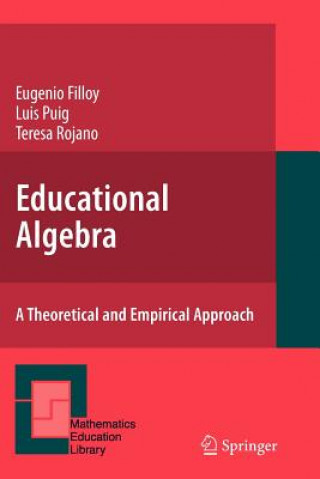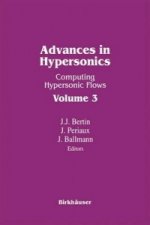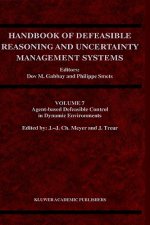
Delivery
Shopping guide





Doesn't suit? No problem! You can return within 30 days
 Gift voucher
any value
Gift voucher
any value
You won't go wrong with a gift voucher. The gift recipient can choose anything from our offer.
Educational Algebra
 English
English
 446 b
446 b
30-day return policy
You might also be interested in


This book takes a theoretical perspective on the study of school algebra, in which both semiotics and history occur. The Methodological design allows for the interpretation of specific phenomena and the inclusion of evidence not addressed in more general treatments. The book gives priority to "meaning in use" over "formal meaning". These approaches and others of similar nature lead to a focus on competence rather than a user s activity with mathematical language.Given its abstract nature and the highly syntactical competence required by the use of symbolic algebra, research on its teaching and learning must rely on approaches that include semiotic concepts and analyses that recall the history of algebraic ideas, among others. Educational Algebra: A Theoretical and Empirical Approach deals with a theoretical perspective on the study of school algebra, in which both components (semiotics and history) occur. This perspective runs opposite to general theoretical models, since it submits components for the design of local frameworks for theoretical analysis. The Methodological design allows for the interpretation of specific phenomena and the inclusion, within such interpretative frameworks, of evidence not included in more general treatments. Such is the case of phenomena observed in subjects who are initiating the study of symbolic algebra, involving the production of personal sign systems at the intermediate level or the level previous to the mathematical sign system which is to be learned.§Disciplines such as Linguistics, Logic, Psycholinguistics, Semiotics, general Cognitive Psychology, Mathematics Psychology, Mathematics Epistemology, History of Mathematics, and others have carried out research on the same topics approached by Mathematics Education and have redefined their results within the framework of their respective fields. Specifically, theorists in Linguistics, Information Processing and Didactics of Mathematics have done important work on the notion of code. Today, this notion is a key element to interpreting the idea of representation in the new explanatory models of cognitive problems placed by alternative teaching approaches, including those involving a technological environment. Additionally, Psycholinguistics and Artificial Intelligence in procedural models of human abilities have intended to explain how and why users of mathematical language naturally and commonly make mistakes in syntactical procedures.§Educational Algebra: A Theoretical and Empirical Approach adds to previous developments with priority given to a pragmatic perspective on "meaning in use" over "formal meaning". The bulk of these approaches and others of similar nature have lead to a focus on competence rather than on a user s activity with mathematical language. §Such a shift in perspective has fundamental implications on the way mathematical language is studied. Essentially, Grammar the abstract formal system and Pragmatics the principles of the use of language are complementary domains in this volume. Both are related to different teaching models, whether new or traditional, used in helping students to become competent users of Algebra. Because of this, Educational Algebra: A Theoretical and Empirical Approach will be of interest to researchers and practitioners within the mathematics education field.
About the book
 English
English




 How to shop
How to shop






























